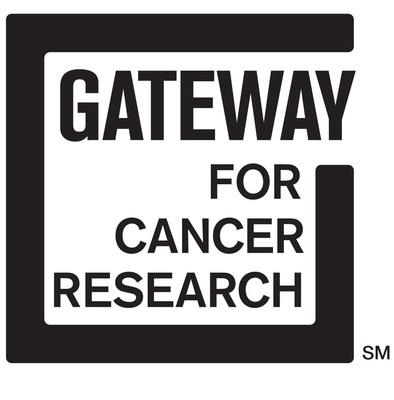Gateway for Cancer Research (Gateway), a nonprofit dedicated to funding transformational cancer research, has approved a $1.5 million grant to help physician scientists at Phoenix Children’s Hospital make progress in combating one of the most devastating, aggressive pediatric brain tumors, called Diffuse Intrinsic Pontine Glioma (DIPG).
|
CHICAGO, April 10, 2019 /PRNewswire/ -- Gateway for Cancer Research (Gateway), a nonprofit dedicated to funding transformational cancer research, has approved a $1.5 million grant to help physician scientists at Phoenix Children's Hospital make progress in combating one of the most devastating, aggressive pediatric brain tumors, called Diffuse Intrinsic Pontine Glioma (DIPG).
Led by renowned pediatric oncologist Cynthia Wetmore, MD, PhD, the Division Chief of Hematology/Oncology and Director of the Center for Cancer and Blood Disorders at Phoenix Children's, the study, called CUPID, will test a therapy combining a customized peptide vaccine with a checkpoint inhibitor to combat the incurable pediatric brain stem cancer, DIPG. This is a collaboration with Stephen Johnston, PhD at Arizona State University, who has developed the technology for identifying peptides for the vaccine. If ultimately successful, the research could be the first therapeutic progress for DIPG in over 30 years. "Our mission instills a sense of urgency to accelerate the pace of cancer research, especially for children, our most vulnerable patients," said Michael Burton, president, Gateway for Cancer Research. "By investing in novel patient-centric approaches, combined with the increasing rate of treatment advances, we will help courageous patients where there is an unmet need, conquer cancer and save more lives." Brain tumors are the most common solid tumor in children – accounting for approximately 25% of all childhood cancers. DIPGs represent approximately 75% of all pediatric brainstem tumors and generally do not appear in adults. Due to their location, DIPGs cannot be removed surgically. The only effective treatment is palliative radiation therapy. "Leading research of this magnitude helps Phoenix Children's Center for Cancer and Blood Disorders achieve its national standing as a top 20 pediatric cancer program in the U.S.," said Robert L. Meyer, President and CEO of Phoenix Children's. "This shows our physicians seek out and implement new solutions for pediatric populations suffering from aggressive illness. We want to change these trends." "In a time where we see such frequent, innovative advancements in science and medicine, it is disappointing there haven't been any major therapeutic advancements made for DIPG in over three decades. Phoenix Children's is determined to turn the page on DIPG treatment and work towards a cure. We're honored to receive Gateway's first-ever Arizona grant award, and we are excited to get to work." Gateway funds Phase I and Phase II clinical trials for all cancer types. As part of its commitment to funding pediatric cancer research, other Gateway-funded pediatric cancer trials underway include the use of a promising new discovery called "Tumor Paint" at Seattle Children's Hospital. Tumor Paint, created from a peptide found in the venom of a scorpion, attaches to tumor tissue and glows under fluorescent light, potentially making it easier for surgeons to see the tumor and more completely remove it, while sparing healthy tissue and preserving patients' quality of life. Additionally, Gateway is funding research at Children's Hospital of Los Angeles that is exploring whether a new drug called MEK162 will turn off mutations in a molecular growth pathway that enable tumor growth in low grade gliomas, brain cancers. If successful, this drug will help stop tumors from growing. This is the first in-children study for this agent. Since its founding in 1991, and under the leadership of founder Richard J Stephenson who has served as Board Chairman since its inception, Gateway has raised more than $85 million and funded more than 170 patient-focused clinical trials at renowned institutions worldwide. Currently, Gateway is funding 57 active clinical trials underway at esteemed institutions including Children's Hospital of Philadelphia, Columbia University, Duke University, Johns Hopkins University, Mayo Clinic, MD Anderson, and Memorial Sloan Kettering, as well as cancer centers in four other countries. As part of its national series of awareness-building and fundraising galas, led by Gateway Director Stacie J. Stephenson, Gateway will celebrate its new partnership with Phoenix Children's Hospital at its annual western region event,Vino con Stelle, on Friday, April 12, 2019. Held at the Gemini Hangar in Scottsdale, Arizona, proceeds from the event will support crucial Phase I and Phase II patient trials across all cancer types, including breast, blood, lung, brain, pancreatic and pediatric cancers. ABOUT GATEWAY FOR CANCER RESEARCH Gateway for Cancer Research℠ is a nonprofit 501C(3) organization committed to funding innovative cancer research that helps people living with cancer to feel better, live longer and conquer cancer TODAY! Thanks to generous underwriting, 99 cents of every dollar Gateway receives directly funds Phase I and Phase II cancer clinical trials at leading research institutions across the country and abroad. Since 1991, Gateway has supported more than 170 clinical trials and funded over $85 million in breakthrough cancer research. Get involved today by visiting www.GatewayCR.org, like us on Facebook at facebook.com/demandcures and join the conversation on Twitter and Instagram at @DemandCures, #BeAGateway. To learn more about our national events series, visit our Signature Events page at www.GatewayCR.org/signature-events.
SOURCE Gateway for Cancer Research |






